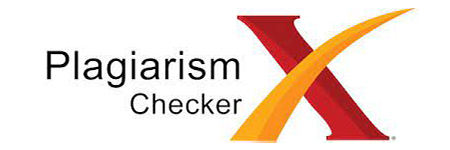Optimalisasi Promosi Usaha Mikro Penjahit dengan Papan Identitas dan Media Sosial
DOI:
https://doi.org/10.70716/jocdem.v1i2.144Keywords:
Micro Business, Tailor, Identity Board, Social Media, PromotionAbstract
Micro sewing businesses have great potential in the creative industry, but they still face various challenges in enhancing their visibility and competitiveness. One of the main obstacles is the lack of effective promotional strategies. This study aims to optimize the promotion of micro sewing businesses through the use of identity boards and social media as marketing tools. The methods used include mentoring, training, and the implementation of digital marketing strategies for micro sewing business owners. The research findings show that the use of attractive and informative identity boards can improve brand awareness, while utilizing social media platforms such as Instagram and Facebook can expand marketing reach and enhance customer interaction. With the right promotional strategies, micro sewing businesses can become more well-known, acquire new customers, and increase sales revenue. The conclusion of this study emphasizes that the combination of strong visual identity and digital marketing is an effective step in strengthening the competitiveness of micro sewing businesses in the digital era.
Downloads
References
Aaker, D. A. (2011). Managing Brand Equity: Capitalizing on the Value of a Brand Name. Free Press.
Aaker, D. A. (2018). Managing brand equity: Capitalizing on the value of a brand name. Free Press.
Chaffey, D., & Smith, P. R. (2017). Digital Marketing Excellence: Planning, Optimizing and Integrating Online Marketing. Routledge.
Kaplan, A. M., & Haenlein, M. (2010). "Users of the World, Unite! The Challenges and Opportunities of Social Media." Business Horizons, 53(1), 59-68.
Kaplan, A. M., & Haenlein, M. (2020). Rethinking the digital age: How digitalization reshapes consumer behavior and marketing strategies. Business Horizons, 63(1), 123-136.
Kotler, P., & Keller, K. L. (2016). Marketing Management. Pearson.
Kotler, P., Kartajaya, H., & Setiawan, I. (2021). Marketing 5.0: Technology for humanity. John Wiley & Sons.
Kotler, P., & Keller, K. L. (2020). Marketing management (16th ed.). Pearson Education.
Kementerian Koperasi dan UKM. (2022). Laporan perkembangan UMKM di Indonesia 2022. Kementerian Koperasi dan UKM Republik Indonesia.
Rahayu, R., & Day, J. (2020). Determinants of e-commerce adoption in SMEs: A study on Indonesian small businesses. Journal of Small Business and Enterprise Development, 27(1), 100-125.
Santoso, B., Nugroho, A., & Wahyuni, D. (2021). The impact of digital marketing training on small businesses: A case study on tailoring SMEs. Journal of Entrepreneurship and Business Innovation, 8(2), 89-105.
Sari, R. P., & Prasetyo, A. (2021). Analyzing the role of social media in micro-enterprise marketing strategies: A study on traditional tailors. Indonesian Journal of Business and Economics, 5(3), 56-72.
Setiawan, T. (2022). The importance of branding for small enterprises: Lessons from Indonesian micro-businesses. Asian Journal of Marketing, 10(1), 23-39.
Solomon, M. R. (2018). Consumer Behavior: Buying, Having, and Being. Pearson.
Wijaya, H., & Nugroho, R. (2021). Digital marketing strategies for SMEs: Case studies from Indonesia. Springer.
Downloads
Published
How to Cite
Issue
Section
License
Copyright (c) 2025 Banyu Agung, Musleh, Tari

This work is licensed under a Creative Commons Attribution-ShareAlike 4.0 International License.











